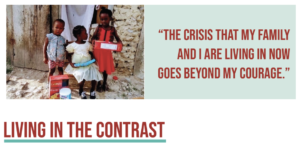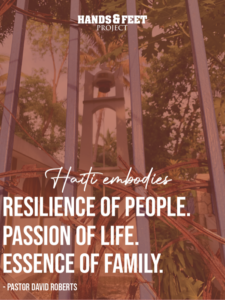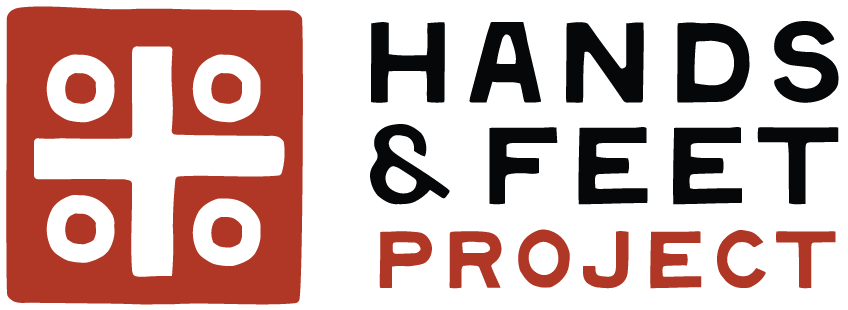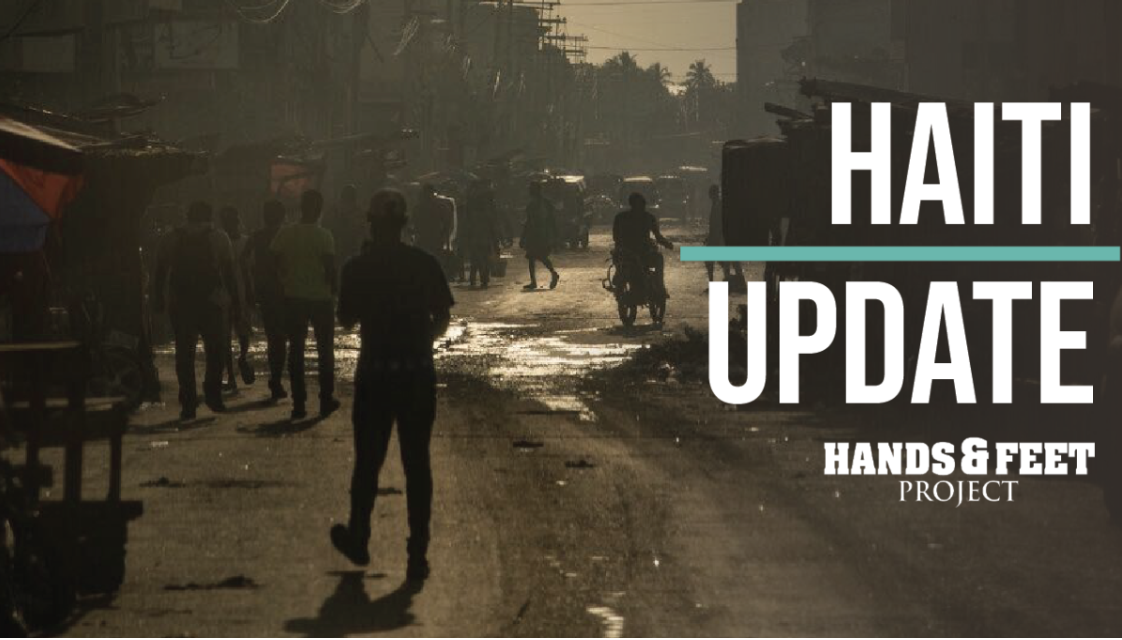We are grateful for your prayers for and support of Haiti and Hands and Feet Project over recent months. Many of you have reached out about ways to help and we wanted to first say – thank you! God is working in the midst of so much brokenness and tragedy, and we are constantly reminded of His grace toward us. We feel every prayer as we continue our work on the ground here. We wanted to give you a glimpse of what life is like here in Haiti, so you can know how to better pray for and support us in the coming days.

Three months after the assasination of President Jovenel Moïse, Haiti is still operating on a temporary government, pending elections. Haiti’s Provisional Electoral Council has set November 7, 2021 as the new date to hold the first round of elections for the president, the legislature, and a controversial constitutional referendum. The second round of presidential and legislative elections is scheduled for January 23, 2022, the same date as municipal and local elections, which have also been delayed for years. Though they are scheduled, there is little confidence or conversation here in Haiti surrounding those elections actually taking place.
Haiti currently has no president, following the assasination of President Jovenel Moïse in an attack on July 7th. The Haitian government is also lacking a functioning parliament and is operating with only a handful of elected senators. Before he was killed, Moïse had been ruling by decree and fought calls to resign over the last three years. Moïse appointed the Electoral Council last September, but its members were not sworn in as required in the Haitian Constitution. Opposition parties and members of the civil society have strongly criticized the electoral body and called it illegal. This week, they again called for a new council to be installed. Long-delayed elections are a top priority for Prime Minister Ariel Henry, who took office on July 20th after Moïse’s assassination. He pledged to create a peaceful environment for the elections to be held.

As the government continues to limp along, the gangs are growing in strength as the Haitian National Police is steadily weakening. A U.N. Security Council report from last month showed 328 kidnapping victims were reported to police in the first eight months of 2021, compared with 234 kidnappings during the entirety of 2020. UNICEF reports as many as 455 kidnappings in 2021, one-third of which are women and children. It is agreed, however, that the “400 Mawazo” gang is responsible for about 80% of abductions in the country, according to the Center for Analysis and Research in Human Rights, a group based in Port-au-Prince that monitors such crimes in the country. The gang’s leader, Wilson Joseph, has been sought by police on charges of murder, attempted murder, kidnapping, auto theft and the hijacking of trucks, according to The Associated Press. They are also claiming responsibility for the most recent kidnapping on October 16th of seventeen full-time missionaries and family members. At the time of this writing, there has been a ransom request, but no other updates on payment, negotiations, or extraction efforts. The Haitian community, young and old alike, feel vulnerable by the boldness of such an act.

Strengthening gang presence has created transportation and logistic nightmares. Haiti’s few major ports are not accessible by multiple roads, and all goods and supplies are filtered through single major routes throughout Haiti. The gangs, including 400 Mawazo, are exploiting this transportation weakness and destroying vehicles, looting cargo shipments, and robbing passengers as they attempt passage. This is having a compounding effect on the availability and price of both food and fuel, two essential elements of survival in Haiti.
There is crippling fear hanging over a multitude of communities in the areas of Coix de Bouqet, Martissant, and others where families, businesses, and individuals have fled. That fear is spreading out into communities that have historically remained unaffected by gang presence. Many, desperate for a productive and prosperous life, are fleeing Haiti through the Dominican Border. Once in the Dominican Republic, they fly to any open border nation willing to host them. This has created an immigration crisis for the Dominican and the United States as those nations represent the start and end of the immigration journey for most Haitians. The United States last month deported an unknown number (anywhere from 750 to 7,000) of Haitians who had attempted to enter the country via Mexico. This has not deterred their desperation to seek sanctuary in the US. It is estimated that thousands more are following the well worn path to the US via the Mexico border.

Hands and Feet Project has experienced an unprecedented spike in families seeking to abandon their children. In Jacmel alone, we have gone from experiencing one desperate family or mother every couple weeks to multiple families each day. We have added fifteen families in our daycare programming. We have also grown our Preserving Families Project to eighty children, represented by fifty-four families.

 Pastor David Roberts of Morningstar Baptist Church, after returning from Haiti this month, said Haiti embodies “Resilience of People. Passion of Life. Essence of Family.” There is so much beauty, community, and potential in Haiti. We live in the contrast of what is and what could be. We hope for the future of every child and family. We fight for their dignity and rights. We love with compassion, mercy, and joy. Thank you for your continued support our work and your love for the beautiful people of Haiti. We will continue to press on with hope.
Pastor David Roberts of Morningstar Baptist Church, after returning from Haiti this month, said Haiti embodies “Resilience of People. Passion of Life. Essence of Family.” There is so much beauty, community, and potential in Haiti. We live in the contrast of what is and what could be. We hope for the future of every child and family. We fight for their dignity and rights. We love with compassion, mercy, and joy. Thank you for your continued support our work and your love for the beautiful people of Haiti. We will continue to press on with hope.

